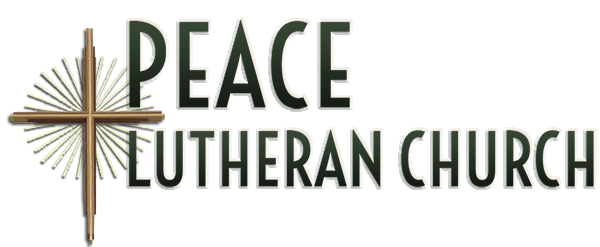Matthew 14:22-33
It was January 2nd, 1997. A Border Collie was keeping watch over the Thompsons’ 80 head of cattle when around 8:30 p.m. the rains that had soaked and flooded Northern California for a week ruptured a levee, sending a 20-foot wall of water surging toward his owner’s three-story home. As the water rose through the night, the dog climbed the roof keeping just ahead of it.
At dawn, helicopter pilot Michael Kidd and cameraman Ron Middlekauff, who were covering the flood for Sacramento TV station KCRA, spotted the waterlogged dog and focused their video camera on the poor creature. The response across the state and even the country was huge. “There was so much devastation, doom and gloom all over the north part of our state… this was an animal that people wanted to root for”. His owners, the Thompsons, recognized their flooded house and their dog, and identified him as Rodeo. By the time the Channel 3 helicopter crew returned, just before sunset, in the words of Middlekauff, “the water was raging around the house,” and Rodeo “looked so forlorn, you could just cry.” They decided to risk a rescue effort. TV viewers by the millions watched with bated breath as the pilot hovered his Belljet Ranger above the roof—its 30-foot blade just inches from the TV antenna—and Middlekauff, the Channel 3 cameraman, with no safety belt, clung to the landing skid with one hand and scooped Rodeo up with the other. “It was probably stupid,” he says. “But we were following our hearts.”[1] The whole nation cheered.
In the midst of the serious drought we’re suffering, we long for rains, lots of rains, so that the water will slake the thirst of the natural world. But too much water—a flood—feels like betrayal, because the very water that gives and nourishes life, in a slithering tide or a roaring chaos devastates the countryside and drowns life. Floods are a primal fear. In our Scriptures, there are scores of references to water, floods, and raging seas, and most of the references express fear and anxiety. Water, necessary for life, was not always to be trusted. It sometimes seemed to be the place of demons. In the scriptures, only God can be trusted. God is the rescuer, the one who saves the people from the literal floods and from the flood of mortal ills that afflict us all.
Remember the archetypal story of Noah and the flood—though in his wrath, as the story goes, he caused the flood, God is ultimately the rescuer of the small band of the righteous—Noah and his family and the animals of the world, two by two. And remember God parting the waters of the Red Sea, so that the people of Israel walked through safely, walls of water on either side. And more closely related to our gospel today, Psalm 107: Some sailors went to sea and [the waves] mounted up to heaven, they went down to the depths; their courage melted away in their calamity; they reeled and staggered like drunkards, and were at their wits’ end. Then they cried to the Lord in their trouble, and he brought them out from their distress; he made the storm be still, and the waves of the sea were hushed. The Lord God is the rescuer, the savior. And he has the power to still the winds.
Consider the plight of the disciples in our story. Following Jesus’ orders, they set out to cross the Sea of Galilee. Out in the middle, a storm came up and their little boat, to give a most exact equivalent of the Greek, was being tortured by the waves—again the allusion to the ancient Hebrew and very human apprehension of the waters as dangerous, even demonic. Indeed, for many of the early Christians, persecution and torture were a common experience. And from those ancient times, the church has been seen as a ship, sailing on the torturous seas of existence. The very term for the interior of a church (traditional ones shaped like an upside down boat) “nave” reflects this understanding, the nave meaning ship, as in navy. So our church buildings become a reference to the ancient metaphor of the Christian experience of our communal faith being a boat that carries us along through dangerous, threatening waters.
Now even though many of the disciples in that boat, including Peter, were old hands at sailing the often stormy Sea of Galilee I am assuming that at the very least they were greatly concerned with the situation. Maybe they were even afraid, though likely didn’t admit it to each other. But their terror was exposed when they saw Jesus walking at 3 a.m. out on the rough waters.
In our lives, it is not unusual to experience the boat of our faith getting tossed around. I’m guessing that most of us know what worry at 3 a.m. is like. When we had two kids in college I’d wake in the wee hours stressed over how we were going to survive financially. The issue is, what do we do about our worry-tormented souls? A once well-known Episcopal priest, Morten Kelsey, suggested that when we awake in the ghostly hours full of turbulence and nearly swamped by anxiety, we accept our plight as an invitation from God to engage in prayer.
There is that invitation in the story. The disciples cry out in terror, but Jesus answers, “Take heart! It is I! Do not be afraid!” Peter, the bold one, wanted to confirm that the ghostly one was Jesus. He was OK with handing his life over to Jesus out there in the storm until he looked away from the Lord and lost his confidence in the face of the wind and the waves. That wavering was just like the kind of praying we are apt to do: hand things over to God, but then when the going gets tough, we obsess, not on God, but on our troubles and take them all back again—and begin to drown in our overwhelming fear and worries. The wavering is a sign of a deep question: can we, will we, dare we, trust God?
That suggests that when we find that when we are worrying and wavering at 3 a.m. it is because we forget we are in the boat, the boat of the church, designed by Christ to weather every storm. It is in the communal experience (like disciples storm-buffeted on the Sea of Galilee) that we are encouraged to hear his call to us as a sign that is God with us in the boat—always, our refuge and our strength. As long as we stay together in the boat, we are going to be OK. It is when we leave wavering in our faith, that we get into trouble.
To be sure, the ancient fear is always there, as voiced in Psalm 42:7: Deep calls to deep at the thunder of your cataracts; all your waves and your billows have gone over me. Yes, that is how things can seem to us. Yes, deep calls to deep, and levees give way, but nothing is deeper than Christ. He is on the waters, but more importantly, he is on the waters as the church itself, that communal faith vessel, in which by the waters of baptism, we’ve gone from death to life, been given the ears to hear him when in the midst of the storm he calls at 3 a.m. “Take heart. It is I. Do not be afraid.”Amen.
[1] http://middlekauff.tv/rodeo.html


